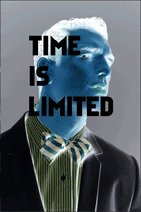Transhumanism.
You've heard about it.
Perhaps done a little experimenting while in college.
But it's time you learned the true beef, the real dirt behind the philosophy of engineered evolution.
Transhumanism is this idea that the human form is merely a transitory phase in a greater evolutionary game-plan, and that it is the obligation of mankind to seize the available technology for the use of creating faster, stronger, bigger, and better Post-Human forms.
You've heard about it.
Perhaps done a little experimenting while in college.
But it's time you learned the true beef, the real dirt behind the philosophy of engineered evolution.
Transhumanism is this idea that the human form is merely a transitory phase in a greater evolutionary game-plan, and that it is the obligation of mankind to seize the available technology for the use of creating faster, stronger, bigger, and better Post-Human forms.

Esfandiary famously proclaimed that he was a " 21st century person who was accidentally launched in the 20th." He postulated that inevitable technological and societal progression would enable people to transform themselves into androgynous immortals. Sex would be a thing of the past, and reproduction would be done entirely by mechanically-assisted means. All traditions and customs would be jettisoned, culled to make way for a new global mega-culture.
He eventually changed his name to FM 2030, deciding that names were merely collectivist labels, and therefore had no place in the dawning of Transhumanist era. Esfandiary chose the suffix of 2030 because he theorized that this would be the year that Post-Humanity would be fully achieved, and he further asserted that he would live to see it, despite that he would be 100 years old.
Esfandiary died on July 8th, 2000, of cancer. He had at last reached the twenty-first century, only to discover that it fell woefully short of his expectations.








No comments:
Post a Comment